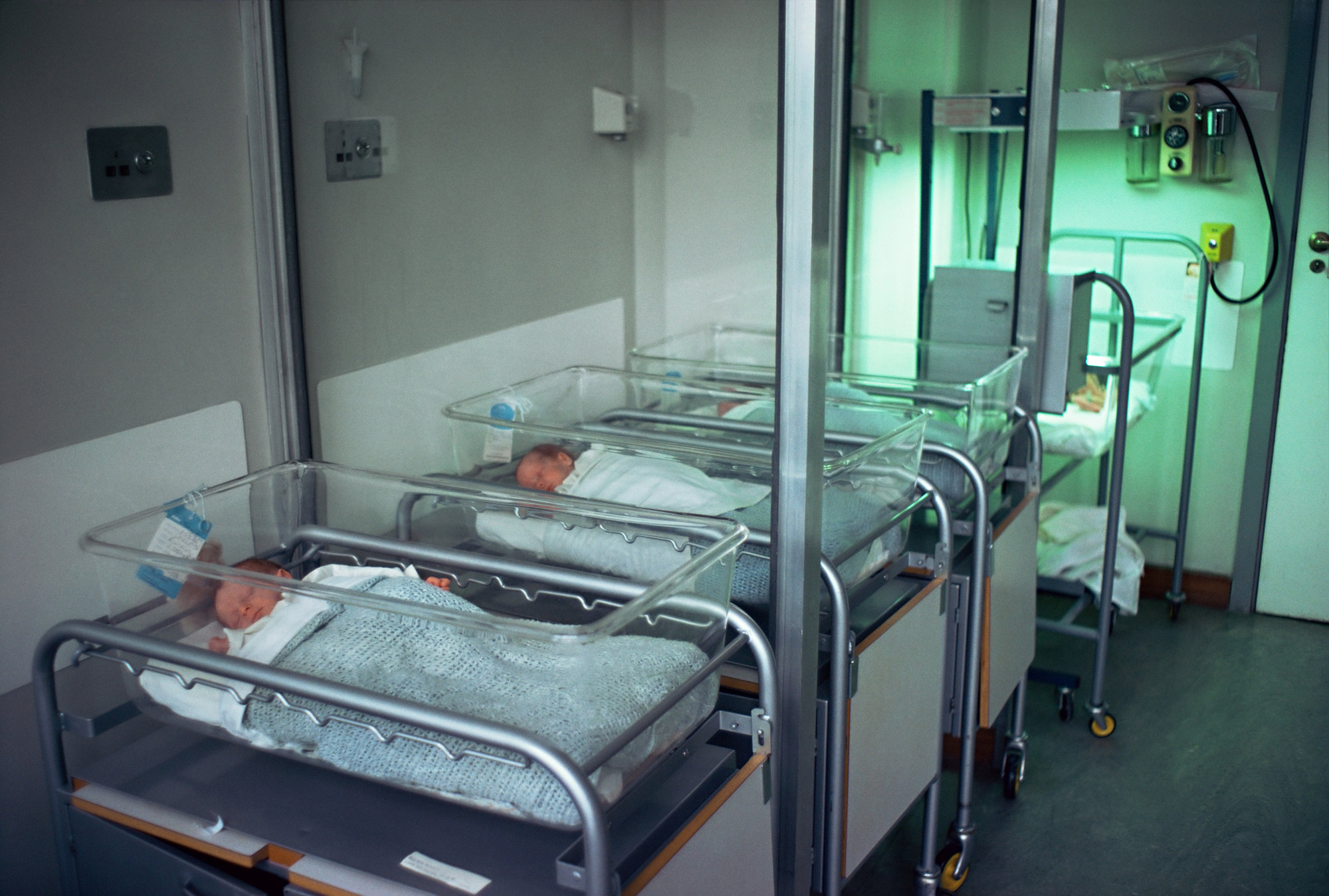
According to BBC News, three newborn triplets have tested positive for COVID-19, in an unprecedented case that's making headlines worldwide. The siblings were born prematurely last Wednesday in Mexico's San Luis Potosí state, where they remain under close care as doctors investigate whether the virus was passed on through their mother.
Two of the siblings, a boy and a girl, are reportedly in stable condition, but a second boy is experiencing respiratory symptoms.
He is continuing to receive treatment at an undisclosed hospital in San Luis Potosí state, though it's unclear just how serious his condition is.
All three of the babies tested positive on June 17, the day they were born.
How the babies contracted the virus has yet to be confirmed.
Doctors have reportedly tested both parents for the virus, but according to the BBC, those results have not been released. Local authorities told the outlet that it's believed the parents may be asymptomatic carriers, and that the babies contracted the virus in the womb, as opposed to after their birth.
In fact, Mexican health officials remain confident on this point.
"It would be impossible for them to have been infected at the moment of birth," State Health Secretary Mónica Liliana Rangel Martínez told the BBC.
If that's the case, it means the mother would have passed the virus on to the babies through her placenta.
While rare, such cases have been documented since the onset of the pandemic. In fact, the virus has also been known to cause premature delivery, which may or may not have been the case here. (Though, to be fair, multiples do often arrive early.)
Sadly, there have been some other cases where this has occurred.
In one such story out of Louisiana, a mother with COVID-19 went into labor three months before her due date, which ultimately led to the baby's death.
"We had a pregnant mother who went to the hospital that was having COVID-19-related symptoms," East Baton Rouge Parish Coroner Beau Clark shared at the time, adding that the woman's symptoms included shortness of breath and a fever. "She ultimately ended up having to be placed on the ventilator because of the profound nature of the shortness of breath and has tested positive for the COVID-19 virus."
"Unfortunately … she went into preterm labor and ultimately delivered the baby prematurely,” Clark continued. "And in doing so, the baby, because of the extreme prematurity, did not survive."
Still, new research has shown that infants, children, and even teens are far less likely to contract the virus than older adults.
And even when they do, their symptoms are generally more mild.
One study published in medical journal JAMA in April found that children with COVID-19 tend to recover within two weeks. Another study published just last week examined the cases of 18 infants all under 90 days old. In the end, researchers found that most of the babies exhibited very mild symptoms — and some didn't experience any at all.
Yet another recent study conducted in London determined that children and teens under the age of 20 were "half as likely" to contract the virus to begin with.
The emergence of multisystem inflammatory syndrome in children, known as MIS-C, is still a concern, of course.
The perplexing illness, which resembles Kawasaki disease, is believed to be triggered by the coronavirus. According to the Centers for Disease Control and Prevention, it can cause many parts of the body to become inflamed — including the heart, lungs, kidneys, brain, skin, eyes, and even the gastrointestinal organs.
Since it was first identified in April, hundreds of children have been diagnosed with MIS-C throughout the world. In New York, a major hot spot of the virus, more than 120 children were found to have the syndrome as of last month, NBC New York reports.
But while the condition has led to several pediatric deaths, doctors maintain that severe cases continue to be rare.
For now, doctors in Mexico are monitoring the babies' condition as they recover.
Mexico has reported more than 185,000 coronavirus cases to date, and 22,584 deaths since its first reported case emerged on February 28. But these numbers pale in comparison to the cases recorded in the US.
So far, the US has reported 2,411,341 coronavirus cases (and counting), which have led to more than 123,000 deaths nationwide — the most of any country.




